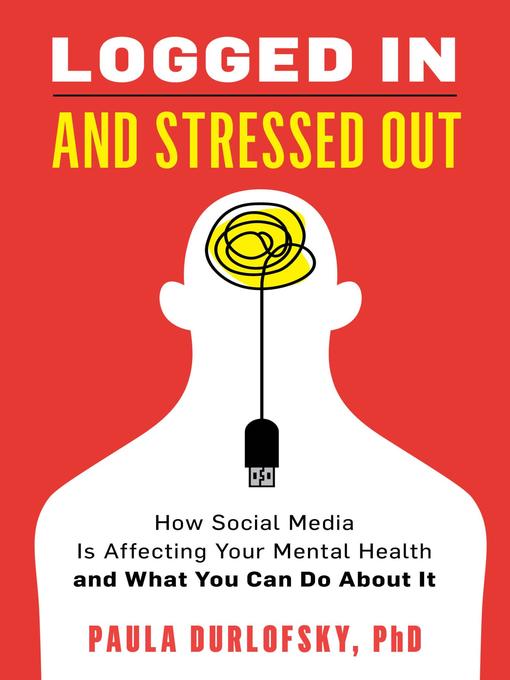America is facing a mental health crisis. Studies show that the average American is spending more than 10 hours a day in front of their screens, suicide rates are at an all-time high, and mental health professionals are working hard to address social media's role in this epidemic. Social media can sometimes feel like an unpredictable roller coaster ride. One's mood can swing from elated after getting a slew of "likes" on a post to worthlessness and deflation in response to being criticized in a comment thread. Too often, bad feelings from social media interactions linger, negatively affecting our off-line lives and worsening already present mental health issues.
Instead of demonizing social media by taking a one-note, "digital detox" approach, Logged In and Stressed Out recognizes social media is not, itself, the problem—it's how we use it that needs examining. Paula Durlofsky guides readers through its impact on break-ups and infidelities, social distortion and comparison, trauma and triggers, social media binging, depression, anxiety, and other common concerns, using real stories from her own practice to personalize concepts and recommendations.
By setting needed limits and embracing new practices, it is possible to improve mental health when using social media. Durlofsky details the whys and hows of creating a safe digital space, cultivating digital and social media mindfulness, applying the techniques of metalizing while consuming social media, and decreasing social media and digital reactivity. She offers suggestions for how to use social media and digital technology to create meaningful social interactions and positive mental health and provides readers with practical steps to put these ideas into action.
Social media is here to stay, and Logged In and Stressed Out presents the right information and tools to improve our lives through examining and changing our digital habits.


